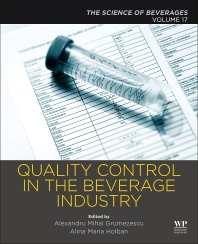Store brands put a new label on quality

Although conventional wisdom would say that the recession is responsible for the growth of private label in recent years, industry analysts report that the economic downturn only fueled a trend that began with retailers improving the quality of private label beverages to go along with lower prices.
“Private label has really been gaining ground for several years now because retailers have put a lot more emphasis on quality,” says Sarah Theodore, beverage analyst for Mintel International, Chicago. “They’ve really created brands that can stand up to national brands, and that’s something that’s been going on for quite a while now. The recession has kind of accelerated this trend a little bit, and in some categories more than others. But it was a movement that was taking place long before the economy fell apart.”
Retailers have placed greater emphasis on quality to sweeten the value proposition of private label because, without a positive experience, consumers are not likely to be swayed only by a lower price the next time they shop, says Brent Baarda, director of consulting and innovation at SymphonyIRI Group, Chicago.
The quality improvements have capitalized on a shift in consumer mindset from brand loyalty to benefit loyalty, a change that isn’t likely to reverse itself as the U.S. economy recovers, Mintel reported in a presentation on new product development trends and recessionary impact at the Institute of Food Technologists Food Expo in July.
“Private label has come a long way since the days when it was just generic brand and plain wrappers,” Mintel’s Theodore says. “A lot of private label brands look just like national brands, and their quality can really stand up to national brands.”
Private label growth, along with other factors, point toward a permanent change for the marketplace as consumers remain focused on getting the most out of products in terms of price, communication and benefits, Mintel reported.
“If the consumer can pay a little less, and they actually feel like they’re getting quality, that’s just as good as the branded product, I think they’re much less likely to go back to that branded product,” Theodore says.
Research from SymphonyIRI indicates a demographic change in consumers who purchase private label as well. From 2008 to 2010, consumers who earn more than $100,000 have been the fastest growing segment of shoppers who purchase private label products, Baarda says. Higher income consumers are having positive experiences with private label and are expanding their willingness to purchase store brands across multiple categories, including beverages, as a result, he says.
“As the economy hopefully continues to improve, I don’t expect to see any income group to do the switch back to branded manufacturers if they’re having a positive experience with the products and the retailers where they buy the products,” Baarda says.
In beverage categories, the success and failure of private label comes down to consumers’ perception of quality, he says. SymphonyIRI asked consumers whether they thought private label was of “better, the same or worse quality” than name brands across multiple categories. In commoditized beverage categories, such as milk, consumers have a hard time differentiating between private label and branded products.
“For the most part, consumers simply recognize that it’s the same product, no matter what label is on it,” he says.
What’s working
Shoppers are more likely to base decisions on price in categories where it is hard for one product to market itself against another and where consumers purchase in bulk, such as bottled water and juice, which is an advantage to private label, Mintel’s Theodore says.
For the most part, bottled water packaging and products are the same, save for slight differences in flavor, she says. Private label products account for more than 16 percent of the convenience/PET still water category, according to SymphonyIRI.
Sales of convenience/PET still water were the largest among the private label beverage categories in U.S. supermarkets, drug stores and mass merchandise retailers, excluding Wal-Mart, for the 52 weeks ending July 11, 2010, SymphonyIRI data show. Convenience/PET still water sales increased by 10.8 percent to $814.5 million in sales during that time period, according to SymphonyIRI.
Traditionally, households with children purchase juice in larger quantities, and price is more a factor in a purchasing decision than brand loyalty, Theodore says. Private label brands account for 10.7 percent of the orange juice category with more than $465.4 million, up 1.6 percent, in the measured channels for the year ending July 11, according to SymphonyIRI.
But private label brands in other juice categories reported modest gains or small losses in the last year, data show. Private label bottled grape juice, which accounts for 1.5 percent of sales in the category, increased by 0.3 percent to $59.1 million in measured channels during the last year, according to SymphonyIRI. Private label brands in the prune/fig juice, apple juice and cranberry juice/blend categories decreased by 0.4 percent, 1.5 percent and 6.3 percent, respectively, in measured channels during the time period, SymphonyIRI data show.
Private label, however, is gaining ground in other categories where big brands traditionally have dominated, such as ready-to-drink tea, Theodore says.
“They’ve been losing about 1 percent share of market per year to private label for the last couple of years,” she says. “That’s pretty significant. When you look at some of the categories, private label is gaining maybe 0.2 percent or 0.3 percent in a year, so 1 percent market share is a pretty significant change.”
Store brands in the canned and bottled tea category had sales of $37.2 million for the 52 weeks ending July 11, an increase of 32.3 percent over the previous year, according to SymphonyIRI. Private label refrigerated teas own 19.5 percent of the market within their category with sales totaling $69.2 million, an increase of 6.6 percent, last year, SymphonyIRI data show.
Following a trend among national brands, private label has expanded its organic and natural offerings, said Tom Vierhile, director of product launch analytics at Datamonitor, New York. “Organic is perceived to be an opportunity for private label because of the sizeable price gap between ‘regular’ products and organic variants,” Vierhile said, in a statement. “Private label organic hopes to shrink that gap.” For example, Wegmans introduced its Organic Food You Feel Good About Soymilk in a chocolate variety.
Vierhile said that interest in private label alcohol beverages is growing, citing the introduction of Member’s Mark Rue 33 French Distilled Vodka by Sam’s Club earlier this year. In addition, Fresh & Easy offers private label beer, including Steel Kettle Whistle and Taurino Cerveza, he said. In April, 7-Eleven Inc. launched its Game Day store-brand premium lager in Light and Ice varieties. Game Day is packaged in 24-ounce single-serve cans and in 12-packs of 12-ounce cans.
In measured channels for the year ending July 11, private label spirits sales fell by 62.9 percent to about $13.9 million, according to SymphonyIRI. Sales of private label domestic table and still wine increased 143.1 percent to $170,902 in measured channels during the time period, SymphonyIRI reports.
Battling brands
In categories where big national brands dominate, private label has struggled to replicate the success it has found in commoditized categories, analysts say. Growth of private label in carbonated soft drinks and coffee, in particular, have slowed as major brands return to the building activities that helped establish them, SymphonyIRI’s Baarda says.
In those categories, the perception among consumers is that the national brand product is of a greater quality than private label, and the price break isn’t worth the sacrifice, he says. In a survey of consumers, SymphonyIRI found that 43 percent of shoppers believe that private label soft drinks are of a worse quality than national brands, and 38 percent of consumers indicated that private label coffee is of worse quality than name brands.
“I think for a lot of Americans, their choice of soft drink is an emotional decision,” Baarda says. “…Certain categories, like coffee, people buy the same brand year after year after year. The loyalty is very strong. Many shoppers, even though they might have a propensity to buy private label overall, they’re slower to buy private label in categories like coffee [and] soft drinks.”
Sales of private label coffee fell 7.8 percent to $31.8 million in measured channels during the time period, SymphonyIRI reports.
“The branded manufacturers that are successfully fighting back against private label are moving the dialogue away from price and toward innovation and toward those brand-building efforts that allowed them to become successful in the first place,” Baarda says.
To foster greater competition, new private label product introductions in both the coffee and soft drinks categories lead all other categories, according to Mintel’s Global New Products Database. In 2009, Mintel recorded 97 new private label coffee products, and 57 new coffee products have appeared on shelves so far in 2010. Through August 17, 2010, 44 new private label carbonated soft drinks had been recorded in Mintel’s GNPD.
“Those categories have brands where the brand itself sort of symbolizes the category,” Mintel’s Theodore says. “I think that has a great deal to do with how much private label is able to make inroads into a category.” BI
Looking for a reprint of this article?
From high-res PDFs to custom plaques, order your copy today!





